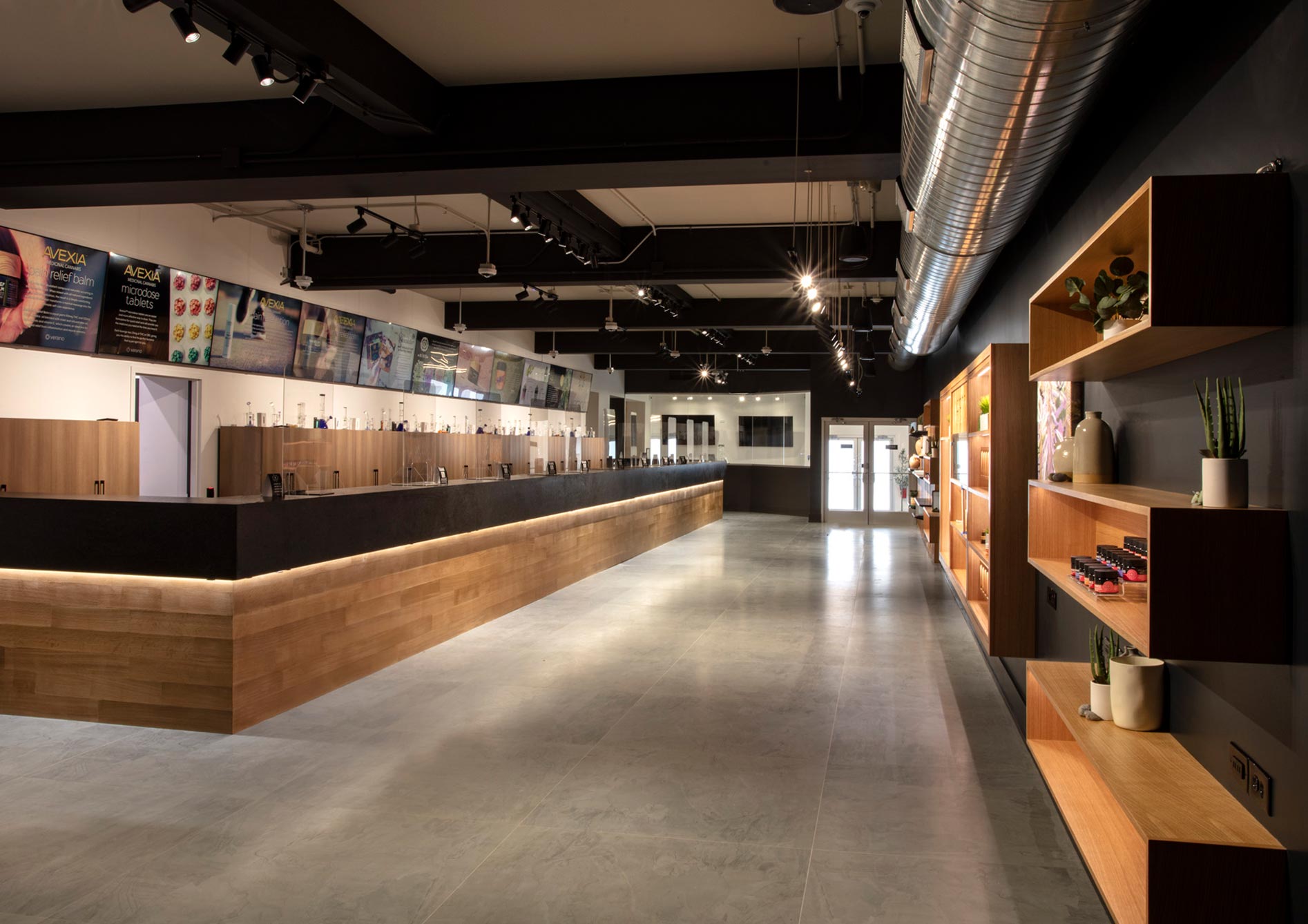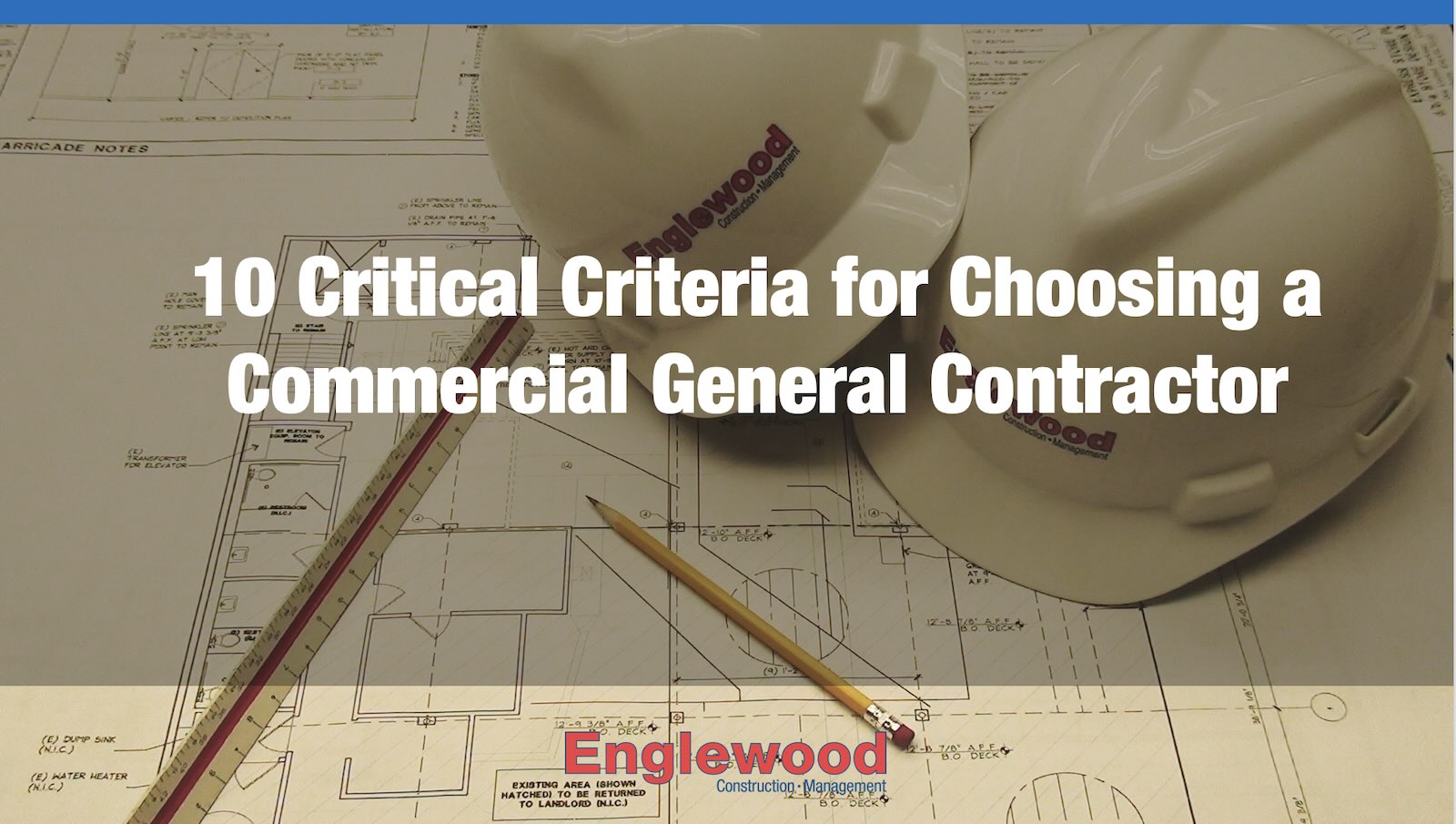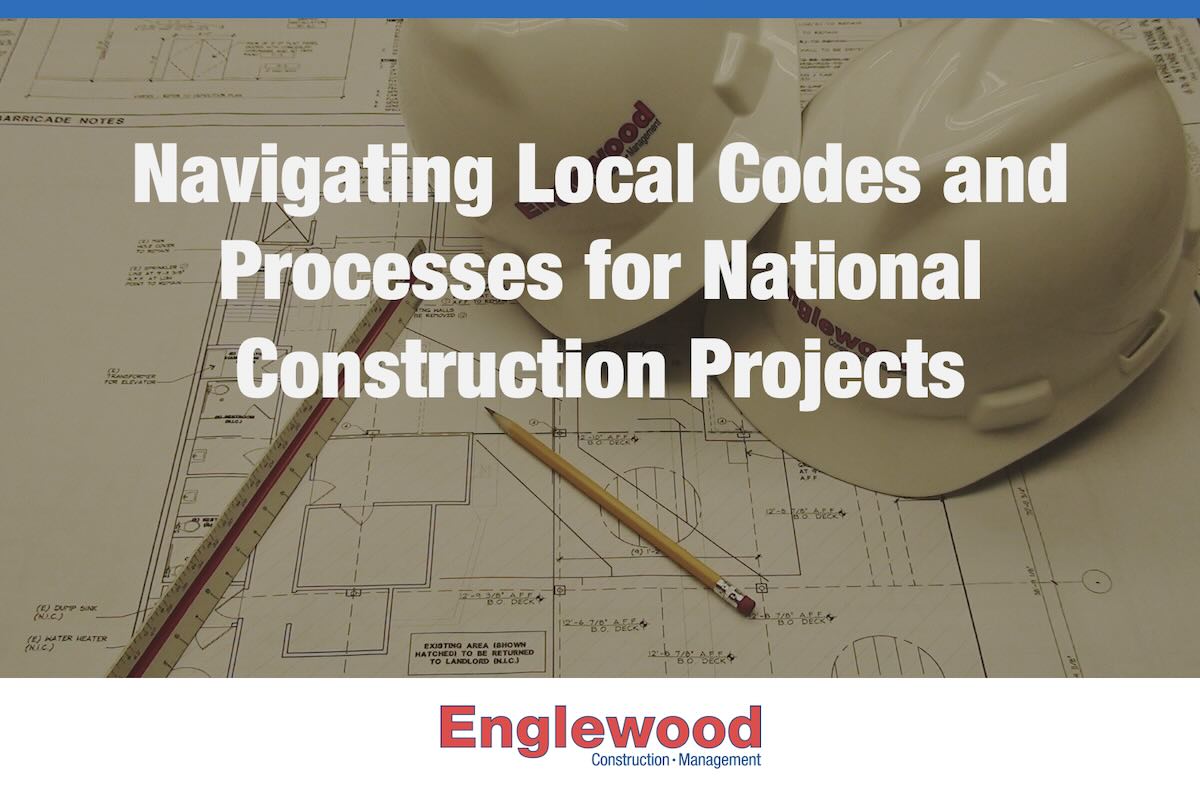Cannabis Retail Construction: How to Navigate the Green Rush
Between 2018 and 2022, Englewood’s national construction work in the cannabis retail industry grew by 100% and we expect that trajectory to continue as more states legalize recreational marijuana use and cannabis firms expand into new markets.
Like any CRE sector, the cannabis industry comes with its own set of nuances for planning and executing construction projects – particularly since it is relatively new and highly regulated. By collaborating with our partners including real estate developers and owner, architects and engineers, as well as security and legal teams, we’ve gained a lot of on-the-ground and judicial expertise that has allow us to successfully navigate this growing arena.
Based on these experiences, here are five key things to consider when developing cannabis retail and industrial facilities:
1. Think Nationally, Build Locally
As more states adopt laws legalizing recreational weed, cannabis companies are looking to get licensing and mobilize in those states quickly. Because of the staggered geography and timing at play, cannabis firms are realizing the advantages in hiring a national commercial construction partner with the capacity and resources to partner with them on multiple facility projects across the country — as well as expertise in understanding and adapting to differences in regulations and requirements in each local market.
This is similar to the national rollouts Englewood has worked on with retail and restaurant brands, where there’s real value for our clients in tapping one construction partner that understands their business in and out, can replicate their concept wherever they are opening new locations, and has a roster of pre-qualified subcontractors nationwide to bring a project to fruition. Plus, having worked in many states and major cities, we’re familiar with the local construction landscape and can help anticipate regional considerations for labor, permitting and approvals. All of this means the construction end of opening new locations becomes a well-oiled process – a level of efficiency that is equally beneficial to cannabis companies entering multiple new states.

2. Timing Is Everything
Englewood is no stranger to hitting a firm opening date for a new location, which is critical for cannabis companies opening in new markets. First of all, the time frame for leasing and building out a space – whether a dispensary or cultivation facility – is often dictated by when new laws around marijuana usage go into effect.
Timing also comes into play because if a cannabis company does not complete its facility by its scheduled date, it stands to lose its state license – potentially an investment of several million dollars. As an example, Englewood was just asked to take over a dispensary build-out project in Ohio because the original contractor fell behind, leaving the operator in danger of losing its license. This underscores the importance of hiring a seasoned general contractor that not only has a proven track record completing jobs on schedule, but also a strong network of reliable, local subcontractor resources that can be counted on to meet the project timeline.
3. Learning Curve for Municipalities
As states adopt new laws around the cannabis industry, there is certain to be a learning curve in the approval and permitting process for new facilities as municipalities work to fully understand state regulations as well as what additional guidelines they can apply at the local level. Our jurisdictional expertise
That makes it exceedingly important that everyone on the project team – from the owner/developer/landlord to the architect and construction firm – be well-versed in the rules and requirements around marijuana dispensaries and cultivation facilities. Not only do we need to be able to build these facilities to both the client’s and the state’s specifications, but we also need to be able to assist and work with municipalities as they learn and implement the state regulation. It’s also helpful for partners on the project to have previous experience with similar projects in order to anticipate questions or issues that are likely to arise and head them off if possible.

4. Security, Mechanicals and More
Any project might have unique construction considerations, but with cannabis dispensaries, we’ve been ahead of the game because these projects have many similarities to the storefront build-outs we regularly complete for our retail clients. That said, state regulations do add some additional layers to the nuts and bolts of these projects. Security features, for one, are a major difference between a dispensary and a ‘typical’ retail store. These facilities are designed to ensure a secure environment for everything from receiving deliveries to storing, displaying and selling the product.
In terms of cultivation facilities, contractors also need to understand and plan for the extensive mechanicals that go into these locations. These large facilities require specialty systems for artificial light, watering and humidification. They use an inordinate amount of water and power, and so the appropriate infrastructure must be in place to support them.
5. Good News for the Local Retail Landscape
In the past, we predicted that most retail developers and landlords say nothing is off the table when it comes to filling vacant space or bringing new traffic to retail centers. That has been true. As more states pass legislation legalizing recreational marijuana, we anticipate much of the stigma associated with it will start to fade and, eventually, many of our retail clients will consider cannabis companies a viable, profitable opportunity to fill space. Just as the retail sector has evolved with the effects of ecommerce and the exit of many major anchor stores and national brands, so too will it adjust to match the demand and opportunities with this new segment.




